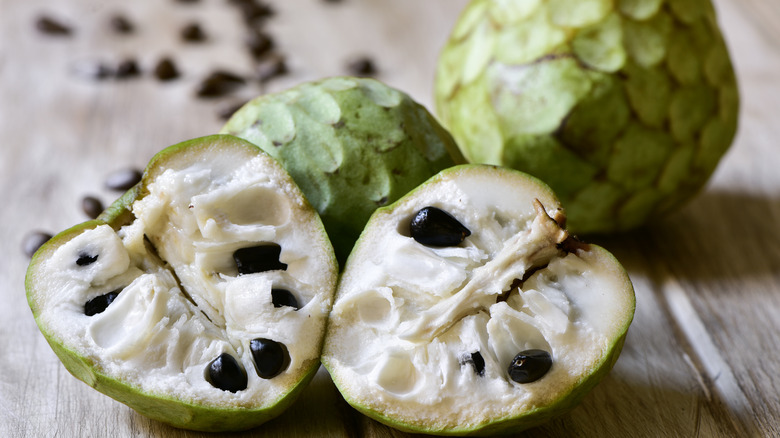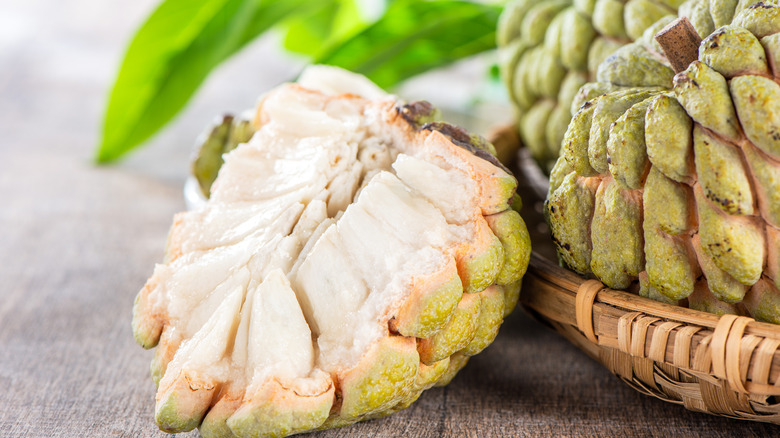Don't Believe This Custard Apple Myth
If you've ever seen "The Rundown," you may remember the tropical fruit that caused paralysis in both Dwayne Johnson and Seann William Scott's characters. They called it "Konlabos" in the film, but the fruit is actually called a chirimoya or custard apple depending on where you buy it. It also goes by the name sweetsop (per Global FoodBook).
Grown in subtropical climates, custard apples can grow to be up to 3 kilograms and somewhat resemble an apple mixed with a hop cone or pine cone (via Custard Apples Australia Inc.). While their skin may be leathery, their insides are creamy and quite sweet, with a custardy texture that gives them their name. The flesh of this fruit itself is said to be quite delicious and is actually used in a wide range of desserts in areas where it's commonly grown.
Although its taste isn't remotely similar to that of an apple — and it doesn't taste much like a custard — you may be wondering if consuming this unique fruit will lead to paralysis like in the movie. Here's what to know.
Eating a custard apple won't cause paralysis
While the film may have depicted these sweet fruits as poisonous and causing paralysis, this isn't accurate. The flesh of the fruit is entirely edible. According to The Guardian, these fruits are ripe when they're green and although you are not supposed to eat the skin or the seeds, it's suggested you scoop out the flesh with a spoon and eat it as is. But while the white flesh is sweet and delicious, the kernels and leaves are a different story.
According to a report published by Purdue University, swallowing the seeds without chewing them up will most likely lead to no bad side effects, but the kernels shouldn't be consumed as they're toxic. But where did this idea for paralysis come from that the movie perpetuated? As Purdue reports, "Injection of an extract from the bark caused paralysis in a rear limb of an experimental toad." While it hasn't been said for sure, this may be where the inspiration for the movie scene arose from. Either way, as long as you don't open the seeds and consume the kernels and stick to eating only the flesh, you can absolutely enjoy these delicious fruits without risking paralysis.

